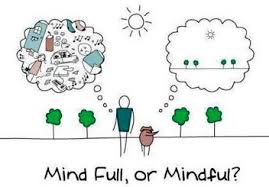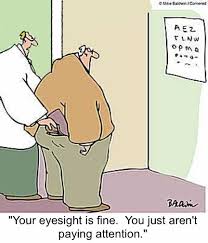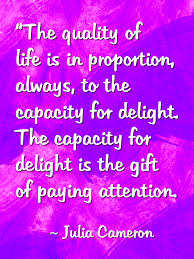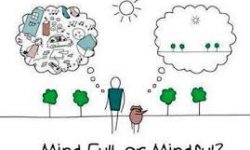When I started studying vision improvement, hoping desperately to improve my strong near-sightedness, I kept reading that trying to see was the enemy. Instead, I should allow myself to see. Trying is strain! OK, I sort of get this, I thought, even if I can’t do it yet. Then I started reading that vision is passive. What?!
I knew I had to do something more than just open my eyes to see, though I wasn’t sure what exactly that thing was. Being passive felt like doing nothing at all! Something is happening in my brain for vision to occur, I was certain. I just couldn’t articulate what that something was.

If the eyes are meant to be like a passive camera, with the intelligent operator deciding where the focus belongs, maybe our attention is more important than what happens with our eye muscles and eyeballs. Now I’m remembering Peter Grunwald, the developer of the Eyebody Method of vision improvement, telling us “Intention (or attention) leads, then the eyes and the body follow”.
So I’m thinking I should be leaving my eyes alone, not squinting or peering or trying to artificially shift my gaze just to avoid staring. It would make more sense to monitor where I put my attention, which will lead my gaze naturally and without effort.

Back when I wore glasses or contact lenses, I felt like they were forcing what I was looking at into clarity whether I wanted to see the view or not, taking away my power of choice. This didn’t feel good to me. It felt like I was being bullied into paying attention, like someone screaming “Look at me!”, rather than me putting my attention where I wanted it. Healthy vision requires relaxation, and I could never fully relax in glasses.
After a few years of vision improvement work with exercises like palming and the Long Swing, I shifted my focus to emotional work with tools like meditation and EFT. If I was anxious, I couldn’t see as well, so calming myself became a priority. And now I’m realizing if I’m calm, I’m more in control of my attention, less distractable.

My attitude now is to stop trying to make my eyes “shape up” to improve my vision, as if they’re mis-behaving children, and instead to monitor my attention. If Peter Grunwald is right and I believe he is, my vision will follow my attention. If I’m frantically darting my attention all over the place, my vision will be frantic and strained too. If I’m mentally sluggish, not giving attention to anything much, I won’t see much either. And if I’m relaxed and aware, gently noticing the visual input without grabbing at it, I’ll see pretty well. Maybe, like in the quote above from Julia Cameron, I’ll even be delighted by what I see.
get help on our Facebook Group!

I wore strong glasses, then contact lenses, from age 5 into my 40s. While making many mistakes, eventually l learned how to improve the way I use my eyes and to see in a more relaxed, healthy manner. It is my pleasure to coach others to do the same. Visit me at https://NancyLNeff.com.
